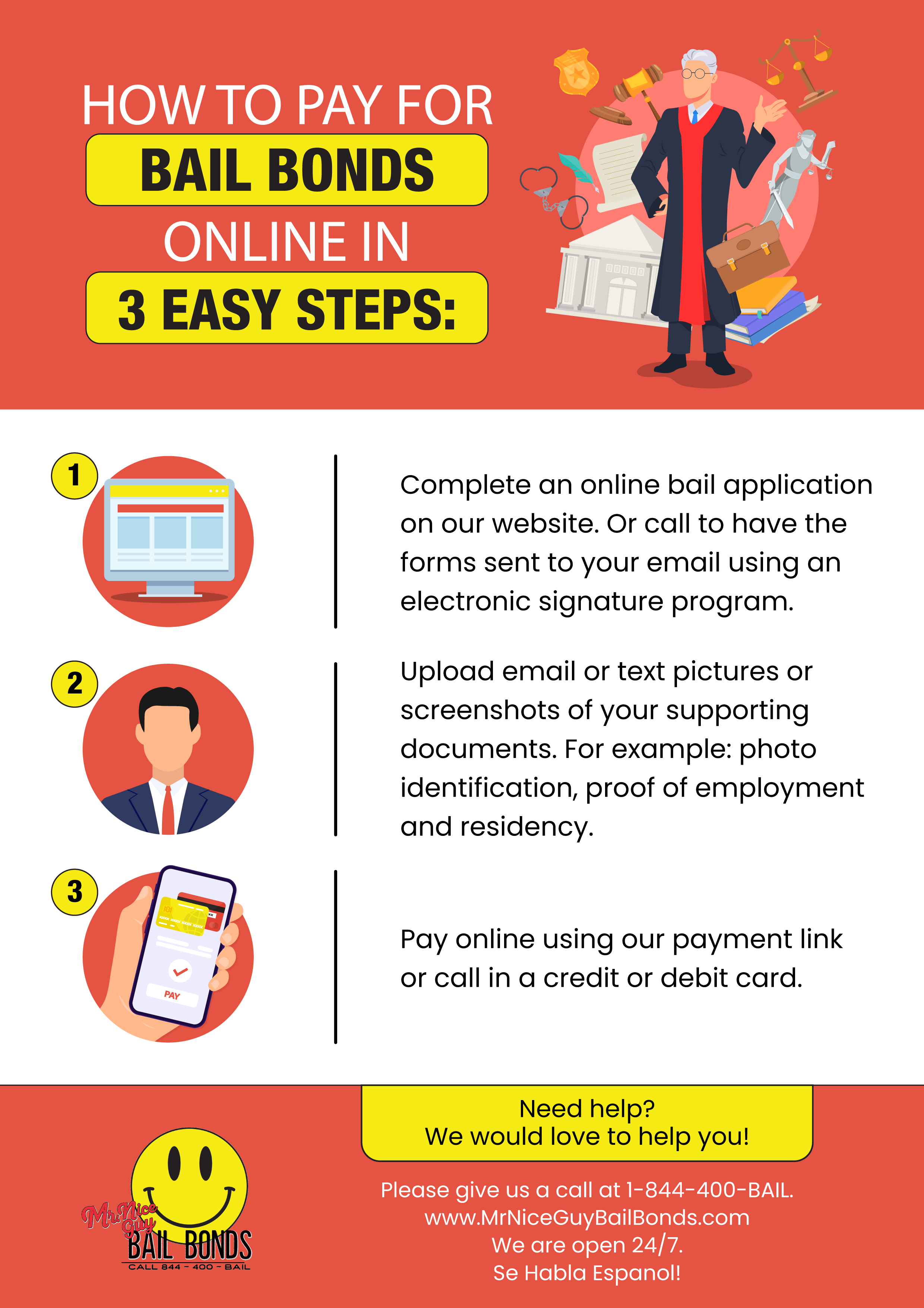24-Hour Support with Bail Bonds Service.
Wiki Article
Your Complete Guide to Recognizing Bail Bond Terms and Conditions
Navigating the intricacies of bail bond terms and conditions is an important part of successfully managing lawful difficulties. Different kinds of bail bonds and their linked expenses can considerably impact the decision-making process.What Is a Bond Bond?
A bail bond is a contractual agreement in between an accused, a bond bondsman, and the court, ensuring that the offender will stand for arranged court process in exchange for their launch from wardship. bail bonds service. This lawful tool serves to secure the rate of interests of the court by providing an economic incentive for the offender to adhere to judicial requirements(bail bonds dayton ohio)Normally, when an offender is arrested, they may be provided the alternative to post bail, which is a monetary amount set by the court. If the offender can not afford the bail, they can seek the help of a bondsman. The bail bondsman bills a non-refundable fee-- normally a portion of the complete bond quantity-- for posting the bail in support of the accused.
Upon the accused's release, the bail bond continues to be effectively until the conclusion of the litigation. Failure to appear in court may lead to forfeit of the bail amount, and the bondsman may pursue the offender to recover the expenses incurred. bail bonds service. Recognizing the characteristics of bail bonds is vital for defendants and their families as they browse the judicial procedure.
Secret Terms Explained
Understanding bond bonds entails familiarizing oneself with several key terms that are essential to the process. One essential term is "bond," which describes the amount of money needed to secure the launch of an accused from custody while waiting for test. "Bondsman," or "bail bondsman," is one more crucial term, denoting a specialist that offers the essential funds for bond in exchange for a cost, typically a percent of the overall bond amount." Security" is additionally considerable; it represents properties pledged by the offender or co-signer to guarantee the bond's repayment. If the offender stops working to show up in court, the collateral might be forfeited. The term "indemnitor" describes the individual that agrees to be liable for the bond, typically a member of the family or pal of the charged.

Sorts Of Bond Bonds
Different types of bond bonds serve different objectives and accommodate specific situations in the legal system. The most common kind is the surety bond, where a bondsman guarantees the defendant's look in court in exchange for a cost, commonly 10% of the bail quantity. This type is widely made use of because it permits individuals that can not pay for the full bond to secure their launch.An additional kind is the cash money bond, Get More Info which needs the full bail total up to be paid in cash to the court. This alternative is often favored for lower bail quantities, as it guarantees the offender's launch without involving a bail bondsman (bail bonds service). If the defendant appears in court as called for, the cash is reimbursed at the final thought of the instance
Additionally, there are residential or commercial property bonds, where property is used as collateral for the bond amount. This can be a practical alternative for individuals who have residential or commercial property but lack fluid funds.
Last but not least, federal bonds apply to government cases and are usually extra challenging to obtain, often needing the aid of a specialized bondsman. Understanding these variations is vital for browsing the bond system efficiently.
Typical False Impressions
Misunderstandings regarding bond bonds commonly lead to complication for accuseds and their households. In reality, bond offers as an economic guarantee that the accused will show up at their scheduled court hearings.One more usual false impression is that all bond bonds coincide. There are a number of sorts of bond bonds, consisting of surety bonds, cash bonds, and home bonds, each with unique qualities and demands. Understanding these distinctions is critical for making notified decisions.
Furthermore, lots of people think that bail bond representatives are merely lending sharks. In reality, certified bail bond agents run within a regulated structure, charging a premium for their services, which is commonly a portion of the total bond amount.
Lastly, some assume that just wealthy people can afford bond. Bail bond services are created to assist those who might not have prompt access to big sums of money, permitting a more comprehensive sector of the population to protect their launch while waiting for trial. Clear understanding of these misconceptions can substantially reduce anxiety throughout a tough time.
Understanding Charges and Prices
While browsing the bail bond process, it is important to know the fees and expenses connected with protecting a bond. Bond bonds typically require a non-refundable premium, which is a percentage of the overall bail quantity set by the court. This costs generally varies from 10% to 15%, relying on state regulations and the bail bond agency's policies.
In addition to the premium, there may be other fees included. These can consist of management charges for refining the bond, collateral charges if assets are needed to protect the bond, and prospective renewal fees if the bond needs to be expanded. It is essential to ask the bail bond agent for an in-depth malfunction of all expenses to avoid unexpected expenses.
(bail bonds akron ohio)Moreover, some agencies might provide layaway plan, enabling clients to pay the costs in installments. These plans might incur extra costs or interest. Comprehending these monetary aspects in advancement can help people make informed decisions and guarantee they are prepared for the general costs connected with the bail bond procedure. Always check out the agreement thoroughly and look for clarification on any type of vague terms before continuing.
Final Thought

Report this wiki page